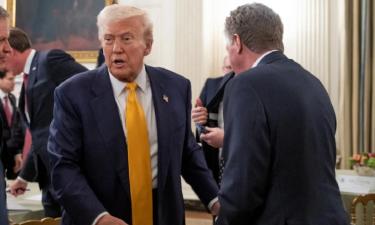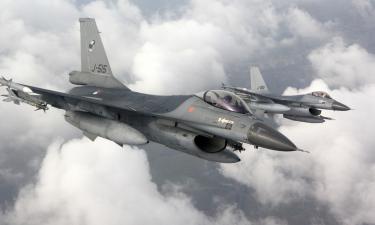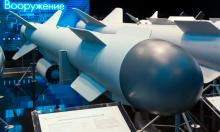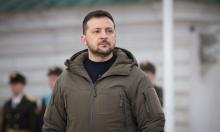Hizbollah ready to destroy Israel
There are more and more rumors spreading around that Israel will open a second front on Lebanon’s border. Such a development of the situation may cause the conflict turn to a regional war, in which there will be other countries of the Middle East involved, not only Lebanon, but also Syria.
Terje Roed-Larsen, the UN Special Coordinator for the Middle East Peace Process, claimed that the attacks on Israel from the Lebanon terrorist group Hizbollah were taking the shape of a bigger threat to the security and stability in the region than the continuing conflict with the Palestinians.
Rod Larsen believes that the world community is concerned about three issues in the current situation of the Middle East crisis: the withdrawal of the Israeli army from Palestinian territories, the attacks from Lebanon, and the delivery of humanitarian aid to the Palestinians.
Hizbollah’s attacks on Israeli positions have recently become more frequent. The Israeli troops responded with artillery fire on Lebanon’s border. Ariel Sharon's government announced that if the attacks continue, then the retaliation would be wide-ranging.
News pieces say that Hizbollah militants have a strong military power, which is enough to paralyze Israel’s north. This organization has some three thousand militants and the up-to-date defense technology, and this organization is in no need of money. Iran, for instance, assigns no less than $100 million to Hizbollah annually, but there is also Syria, Lebanon, and other Muslim countries.
Hizbollah has many fans in the Islamic world. It is considered that Hizbollah forced Israel to withdraw its troops from Southern Lebanon. The organization has been helping the Palestinians since the beginning of the intifada.
Neither Hizbollah nor Israel have been waging large-scale military actions since the beginning of the conflict, but this situation will not last long now. Of course, it will not be a strange thing for Israel to have two fronts in the war, but it will be very hard to find reasonable arguments for Israel to explain an incursion into a neighboring state, the territory of which Israel left only two years ago, especially, when the world community is perceiving Israel to be the aggressor.
The story of this conflict, in the course of which there were over 900 Israeli military men killed, starts in 1982, when Israeli troops invaded Lebanon and reached its capital, Beirut. The operation "Peace for Galilee" was a response to the systematic missile and artillery attacks on Israel’s northern territories from the Palestine Liberation Organization on Lebanon’s territory. Lebanon was not incidentally chosen by extremists for their attacks on Israel. After the civil war from the end of the 1970s to the beginning of the 1980s, the notion of “Lebanization” appeared as an international word. The country was split into small districts, which were not controlled by the government. The government turned out to be so weak that it could do nothing but agree to the presence of the Israeli troops on Lebanon’s territory. This made the Shia youth mad , and the young people started reaching out for Ayatollah Ruhollah Khomeini's ideas that were gaining strength in Iran. That was a time when Hizbollah (the Party of God) appeared as a radical Shia group formed in Lebanon; a strongly anti-West and anti-Israel group.
Hizbollah’s tactics and techniques have changed over two decades. The gunmen used to us ambushes, trying to arrange direct clashes with the Israeli soldiers, losing a lot of their people. Today, Hizbollah prefers to mine roads or attack Israelis with missiles.
At the end of the year 2000, Israel withdrew its troops from the occupied territories of Southern Lebanon. The right-wing parties of Israel accused Prime Minister Ehud Barak of betraying Israel’s interests. Rafael Eitan, the former chief of the general headquarters used to warn that “leaving Southern Lebanon would have very serious consequences, as the troops would have to be dispatched again soon, and this would result in more bloodshed.”
The followers of the tough line believe that withdrawing Israeli troops from the Southern Lebanon was possible only under one condition: Hizbollah’s total disarmament. However, a large-scale military operation would be needed for that, and noone decided to carry such an operation out. Now, Israel’s right-wing forces have a good shot at rewinding the time. Have they thought out the consequences of their actions? That is the question.
Dmitry Litvinovich PRAVDA.Ru
Translated by Dmitry Sudakov
Subscribe to Pravda.Ru Telegram channel, Facebook, RSS!




